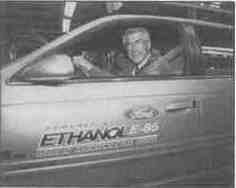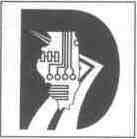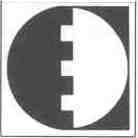Innovations
The cars can also operate on lower mixtures of ethanol and gasoline, including the 10 percent blend available at most service stations.The state has 10 E-85 fueling facilities throughout the state for more than 140 ethanol-fueled vehicles already in service in state, federal and private fleets. Illinois is both the largest producer and greatest consumer of ethanol in the nation. The federal 1992 Energy Policy Act requires states to begin purchasing alternative fuel vehicles in model year 1996. Illinois already has the largest ethanol-powered fleet in the country and is ahead of the federal clean air mandates for alternative fuel cars. A favorable ruling by the U.S. Environmental Protection Agency expected at the end of June would expand ethanol production, and that means jobs for Illinois. A University of Illinois analysis shows that for every increase of 100 million bushels of corn in ethanol production, 3,000 jobs in corn processing, transportation, wholesale trade, financial services and other businesses will be created.
The Discovery Center opened in Springfield in mid-May and will tour the state for six to nine months. It is funded by a private industry coalition organized by the Edgar administration and the Illinois Coalition, a public-private partnership that promotes Illinois' economy through the application of science and technology. Corporate sponsors include Ameritech, Apple Computer, GTE, IBM, Illinois Consolidated Communications, Intel, Novell, Sprint/Centel, Terasys, U.S. Robotics and Zenith.
If you can't make the traveling show, you may want to visit the Manufacturing Technology Consortium based at the Rock Island Arsenal in Rock Island. As part of a national defense conversion, the arsenal is used to train businesses in the cooperative use of technology for production and employee training.
"Industrial Partners is an opportunity for manufacturers to participate more directly in technology training that meets their needs and enhances the ability to compete in the economic marketplace," says Darv Bloemker, director of the Manufacturing Technology Consortium and professor of industrial education and technology at Western.
The university has created the Harry F. and Elaine Chaddick Institute to promote understanding of land use, zoning and urban development issues throughout the state. In addition to course studies related to urban land issues, the institute plans to hold workshops and a seminar this fall to assist local governments in the use of geographic information systems (GIS), the hot- button topic in urban planning. GIS are computer-based mapping programs that take all that is known about a piece of land — topography, roads, buildings, building ownership and attributes of people in the buildings, tax information, etc. — and translate the information into a detailed layered map.
Professor Joseph P. Schwieterman, who co-directs the institute with Professor Richard A. Yanikoski, says they hope to fill a niche to serve local governments, particularly smaller ones who often do not know about the land mapping technology or cannot afford it. The institute is named for Harry F. Chaddick, a local entrepreneur who served as the city of Chicago's zoning director in the 1950s.
Secretary of State George H. Ryan says that the technology and security features contained in the new licenses "virtually guarantee" that back-alley operations selling fake ID'S to minors will go out of business. Ryan says people under 21 buy the fake ID'S for one reason only: to buy liquor. "Unfortunately," says Ryan, " a teen with a fake ID is a tragedy in the making." Statistics show that people under 21 are almost twice as likely as all other motorists to be killed in a drunk driving crash. All Illinois drivers should have the new hologram licenses within three years. Beverley Scobel 40/July 1994/Illinois Issues Innovations
"We are delighted to be a part of this new service in Illinois," Wojcicki said. "We are pleased that Access Illinois wanted Illinois Issues to be involved in its new service, because Access Illinois contains a lot of information about state government, and we know that we are an important source of information about state government and politics." Unlike many services that charge a monthly fee, Access Illinois offers free subscriptions for a variety of basic services, such as the names, addresses and phone numbers of many state government officials, the USA Today newspaper, Illinois Issues magazine, information about opportunities to bid on state contracts and much more. Although Access Illinois plans to make some other information available for a fee, Wojcicki noted, "I am happy that Access Illinois is committed to providing information about state government at no charge to Illinois customers." To register on Access Illinois, persons with a computer, modem and communications software simply dial (217) 787-6255 and follow the easy on-screen instructions for signing up. (Configure your modem to N-8-1 and use an ANSI terminal emulation for best results.) Among the features from Illinois Issues that will be available on Access Illinois: • Summaries and full texts of all articles and most columns in the magazine, starting with the 1994 issues. Texts of articles can be downloaded onto your computer. • Summaries only of articles and columns in the magazine from 1993 and prior years. (We have just begun preparing these and more will become available as staff time permits.) • Keyword searches of phrases or names to locate more easily topics of interest to you. • Electronic mail: You can communicate with us on Access Illinois' own e-mail system, or through an Internet gateway. Send us letters to the editor or answer our "Question of the Month," for example. Wojcicki said he welcomes comments and suggestions from readers about this new service. "It's new territory for all of us. So we expect to make changes to improve our electronic accessibility. And remember, you get a lot more on Access Illinois besides Illinois Issues. We're just one piece of it." July 1994/Illmois Issues/41
|
|||||||||||||||




